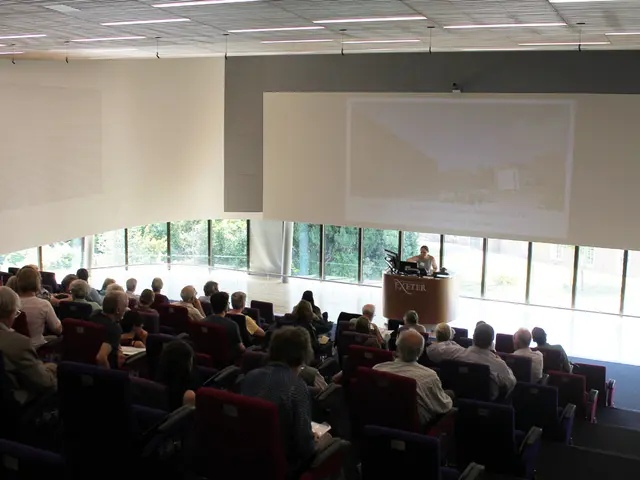Perfusionist's Role and Skills: Duties and Specialized Knowledge
Perfusionists: The Unsung Heroes of Critical Surgeries
Perfusionists are specialized healthcare professionals who play a crucial role in supporting patients during complex surgeries and critical illnesses. These dedicated professionals operate heart-lung machines and other extracorporeal circulation equipment, ensuring blood flow and oxygenation to the patient's tissues when the heart and lungs need to be temporarily bypassed or supported.
Education and Training
Becoming a perfusionist demands rigorous education and clinical training. A four-year bachelor's degree is required, typically in perfusion or a related science field like anatomy, physiology, biology, or chemistry. Many perfusionists complete an additional certification program or a master's degree in perfusion technology, which usually takes 2-3 years and includes both academic study and clinical rotations. Hands-on clinical training under supervision is essential, where trainees learn to operate heart-lung machines, ECMO (extracorporeal membrane oxygenation), and related devices. Passing certification examinations is required to become credentialed and practice professionally. Continuing education and recertification maintain their expertise throughout their career.
Role and Responsibilities
Perfusionists' responsibilities extend beyond operating machinery. They are also responsible for explaining the perfusion process to patients and their families, assessing a person's medical history, monitoring vital signs, providing medications, performing laboratory examinations, administering tasks, communicating with the team, and working with people on an ongoing basis. During surgeries, they ensure the heart-lung machine is working correctly, making sure the right parts are available, and maintaining a person's stability while they are linked to the machine.
Common Surgeries and Conditions
Perfusionists support patients during a variety of surgeries, including open-heart surgeries such as coronary artery bypass grafting (CABG), heart valve repair/replacement, and congenital heart defect repairs. They also play a vital role in major vascular surgeries and trauma surgeries requiring cardiopulmonary support. In critical cases of severe cardiac or respiratory failure, including pediatric cases, perfusionists set up and oversee ECMO machines to support patients whose heart and lungs need rest during severe illness or injury.
In some cases, a heart-lung machine may be used in an emergency or while awaiting surgery to help a person recover from infections that damage the heart. The ECMO machine can replace the function of both the lungs and the heart, and perfusionists can adjust the machine's settings based on a person's condition.
Working Environment
Perfusionists typically work in the operating room, cardiovascular ICU, or heart catheterization labs. They work alongside the surgical team during heart procedures and for patients with critical illnesses requiring ECMO. In some instances, they may work with a person's medical team to determine the best equipment and ensure it works optimally.
In conclusion, perfusionists are indispensable in procedures where the heart and lungs need to be temporarily or continuously bypassed or supported. Their expertise and dedication ensure that patients receive the best possible care during critical surgeries and illnesses.
- Perfusionists, in addition to operating heart-lung machines, explain the perfusion process to patients and their families, assess a person's medical history, monitor vital signs, provide medications, and perform laboratory examinations.
- Perfusionists support patients undergoing various surgeries, including open-heart surgeries like coronary artery bypass grafting (CABG), heart valve repair/replacement, congenital heart defect repairs, major vascular surgeries, trauma surgeries, and in critical cases of severe cardiac or respiratory failure, including pediatric cases.
- To maintain their expertise throughout their career, perfusionists need continuing education and recertification, and they typically work in the operating room, cardiovascular ICU, or heart catheterization labs, working alongside the surgical team during heart procedures and for patients with critical illnesses requiring extracorporeal membrane oxygenation (ECMO).




